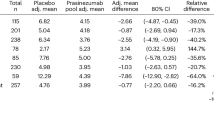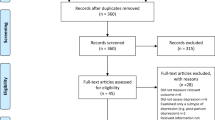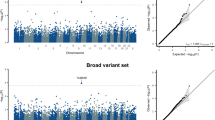Abstract
Schizophrenia is a serious psychiatric illness with a life-time risk of approximately one percent. Many of the patients, but not all, benefit from treatment with anti-psychotic drugs known to block dopamine D2-like receptors. The use of conventional neuroleptics is, however, hampered by the risk of extrapyramidal side-effects. Tardive dyskinesia (TD) is usually regarded as the most serious of these drug-induced movement disorders due to its high prevalence and potentially irreversible nature. In this study, we have investigated the genetic variation of the dopamine D3 receptor gene (DRD3) as a putative risk factor for TD in schizophrenic patients receiving long-term anti-psychotic drug therapy. We found a high frequency (22–24%) of homozygosity for the Ser9Gly variant (allele 2) of the DRD3 gene among subjects with TD in both a cross-sectional and a longitudinal evaluation, as compared with the relative under-representation (4–6%) of this genotype in patients with no or fluctuating TD. This result indicates that autosomal inheritance of two polymorphic Ser9Gly alleles (2-2 genotype), but not homozygosity for the wild-type allele (1-1 genotype), is a susceptibility factor for the development of TD, an observation which may improve the understanding of the pathophysiological mechanisms of TD and influence the design and choice of future anti-psychotic drugs. The correlation between a serious motor side-effect and a genetic marker could lead to selection bias in the sampling of schizophrenic patients for genetic studies, and may therefore explain the apparent association reported between susceptibility for schizophrenia per se and homozygosity for the DRD3 gene.
This is a preview of subscription content, access via your institution
Access options
Subscribe to this journal
Receive 12 print issues and online access
$259.00 per year
only $21.58 per issue
Buy this article
- Purchase on Springer Link
- Instant access to full article PDF
Prices may be subject to local taxes which are calculated during checkout
Similar content being viewed by others
Author information
Authors and Affiliations
Additional information
Abbreviations: DRD3, dopamine D3 receptor; PCR, polymerase chain reaction; TD, tardive dyskinesia. Italicised type is used in the text for the DRD3 gene and alleles.
Rights and permissions
About this article
Cite this article
Steen, V., Løvlie, R., MacEwan, T. et al. Dopamine D3-receptor gene variant and susceptibility to tardive dyskinesia in schizophrenic patients. Mol Psychiatry 2, 139–145 (1997). https://doi.org/10.1038/sj.mp.4000249
Received:
Accepted:
Issue Date:
DOI: https://doi.org/10.1038/sj.mp.4000249
Keywords
This article is cited by
-
Multivariable clinical-genetic model for predicting dyskinesia in early-onset Parkinson’s disease
Translational Neurodegeneration (2021)
-
Minimize exposure to antidopaminergic drugs whenever possible to reduce the risk of drug-induced parkinsonism and tardive dyskinesia
Drugs & Therapy Perspectives (2019)
-
Current Methods for the Treatment and Prevention of Drug-Induced Parkinsonism and Tardive Dyskinesia in the Elderly
Drugs & Aging (2018)
-
Personalized medicine in psychiatry: problems and promises
BMC Medicine (2013)
-
Relevance of animal models to human tardive dyskinesia
Behavioral and Brain Functions (2012)



